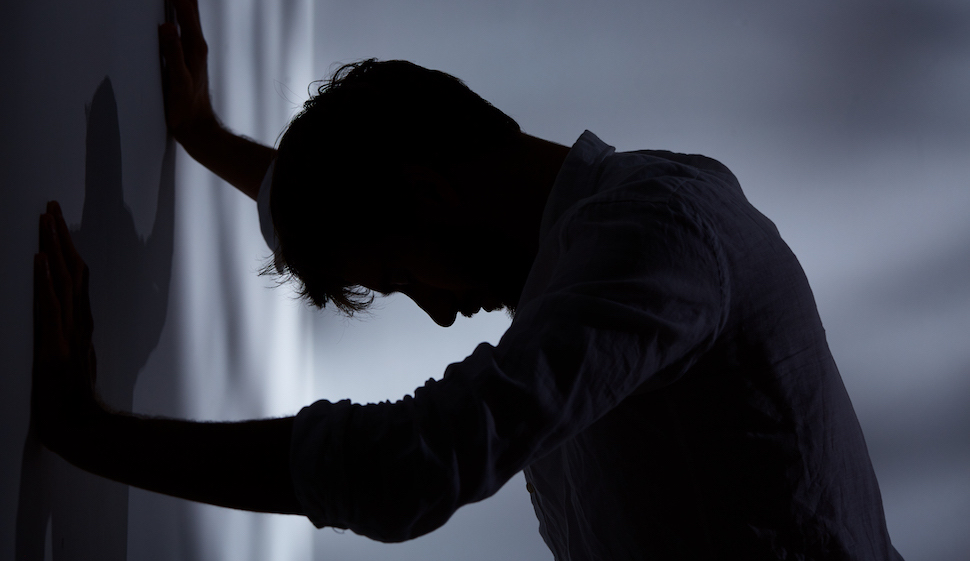
Postnatal psychosis is more likely to affect women with mental health conditions, such as bipolar disorder or schizophrenia.Ĭhanges in mood can also be signs of postnatal psychosis, in addition to the symptoms of psychosis: That usually happens in the initial weeks following a baby’s birth. Postnatal psychosis, also called puerperal psychosis, is a severe form of postnatal depression, a type of depression some women experience after having a baby.Īn estimated 1 in 1,000 women who give birth have postnatal psychosis. A sudden loss in their train of thought, resulting in an abrupt pause in conversation or activity.Disturbed speech – for example, they may switch from one topic to another mid-sentence.Sometimes, the thought patterns of those who are experiencing psychosis are disrupted, confused, and abnormal. In actuality, less than 1% of Americans suffer from a psychotic condition. Due to the decreased prevalence of psychotic disorders, this does not automatically imply that they will experience one. Is Depression a Disability? Eligibility, Appliying and MoreĪccording to American statistics on psychosis, 3 out of every 100 citizens either have or will experience a psychotic episode at some point in their lives.Is Anxiety a Disability? Can You Get Disability for Anxiety?.What Is a Co-occurring Dual Diagnosis Treatment Center? Why is dual diagnosis treatment vital for long-term Recovery?.4 Stages of Substance Abuse and Reasons Why People Experiment With Drugs.Inpatient Mental Health Treatment Options.Mental Health Rehab & Dual-diagnosis Mental Health Solutions for Rehabilitation.Bipolar Disorder Symptoms, Causes, Diagnosis, & Treatment.Effective Depression Treatment, Depressive Disorder Symptoms, Types, & Causes.

5 Personality Traits, Types of Personality Disorders, Signs & Symptoms, When To Seek Help.Psychiatric Disorders Treatment, List, Causes, Symptoms & Types.Individuals who experience a psychotic break frequently don’t realize that their hallucinations or delusions are false, which can make them feel anxious or agitated. For instance, someone might believe they are the leader of a nation or have the power to resurrect the deceased. Someone with grandiose illusions could think they are in charge or have authority. When someone has an unwavering belief in something false, they are suffering from a delusion.Ī person suffering from persecutory delusions could think that someone or something is plotting to harm or kill them. Taste – a taste when there is nothing in the mouth.Smell – an odor that other people cannot smell.Touch – feeling touched when there is nobody there.Sounds – hearing voices or other sounds.Sight – seeing colors, shapes or people.Those who experience hallucinations do so when they perceive objects that do not actually exist. Someone who develops psychosis will have their own unique set of symptoms and experiences, according to their particular circumstances.īut in general, 3 main symptoms are associated with a psychotic break: Psychosis patients are typically more likely to harm themselves than others. Often have a total disregard for the consequences of their actions.īecause they can be violent, people with antisocial personalities can occasionally be a threat to others.Lack empathy – the capacity to understand how someone else feels.
#PSYCHOTIC BREAK SYMPTOMS FULL#
You shouldn’t mix up the phrases “psychosis” and “psychopath.”Ī person suffering from psychosis has a temporary (acute) illness that, if treated, frequently results in a full recovery.Ī psychopath is someone with an antisocial personality disorder, which means they: Also, a person going through a psychotic break could struggle with sadness, anxiety, sleep issues, social disengagement, lack of motivation, and general difficulties functioning.


Additional signs include inappropriate behavior and speech that is illogical or incomprehensible. A person’s ideas and perceptions are distorted while they are experiencing psychosis, and they could find it difficult to distinguish between what is genuine and what isn’t.ĭelusions (false beliefs) and hallucinations are signs of psychosis (seeing or hearing things others do not see or hear). This type of illness is referred to as a psychotic break or episode. The term “psychosis” refers to mental illnesses where there has been a partial loss of contact with reality. The issue is that until a person is in a crisis, people frequently fail to detect psychosis. It’s vital to understand that potential warning indicators might appear along a time continuum rather than thinking of psychosis as something that “breaks” or “snaps” one day. Psychotic disorders are severe mental disorders. Though a psychotic episode is a more precise description, it is viewed as a severe and abrupt rupture from reality.


 0 kommentar(er)
0 kommentar(er)
